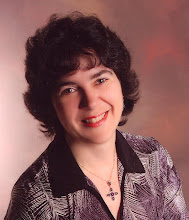Keeping Watch

Matthew 26:38b "Stay here and keep watch with me."
Over New Year's I was visiting friends in Florida and, as you know if you've been watching the news, Florida has been having record cold temperatures. New Year's morning began with forty-degree temperatures and pouring rain, starting about 5:30 am and lasting all morning. So we got up late, felt lazy, and figured we'd shower and get dressed sometime after the Rose Bowl parade.
Then Dorothy said, "I just saw a dog." Understand that the home I was visiting is out in the middle of nowhere. You drive until the pavement turns to dirt and the dirt turns into their front yard. A dog out there meant a lost dog. It was about 9:30 am, it was still pouring and miserable and cold. I went out on the porch.
Shortly, she came around the corner--a chocolate lab, soaked through and acting as if she had been shoed away from a number of other homes, perhaps with force. But I could see she had a collar and tags, and after some persistence, she came to me. It took awhile, but I managed to get her up on the porch and got the information off her tags. Dorothy called while I stayed with the dog. Her name was Hershey, and her owner was out driving around looking for her when we called. She would come soon.
And so we waited. We got a towel and dried her off and fed her a bit of leftover steak from the night before. We looked down the road and we waited and we watched until Hershey's owner came to claim her. Then, having added "muddy wet dog" to my personal scent, I finally took a shower just in time for the parade.
Waiting with Hershey reminded me how frequently simply sitting and waiting with someone is the best form of ministry. When we sit with someone who has a loved one in surgery; when we keep vigil at the bedside of someone in their last hours; when we visit someone whose house has been empty of company far too long--what can seem like time doing nothing is actually time being Christ for others, being God with skin on.
That's all Jesus wanted during those last few hours before his arrest and death--someone to sit and watch with him. The disciples fell asleep and failed that simple request three times. We often fail as much or more. But with each new day and each new year, there is a chance to get it right--a chance to be there for the frightened, the lost, the wet and the cold. A chance to make a call, to get a towel, and to wait and watch until the One we wait for comes.
Labels: Anne Robertson, Bible, Christianity, Devotions, dogs, Massachusetts Bible Society, spiritwalkers





